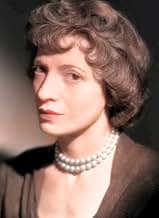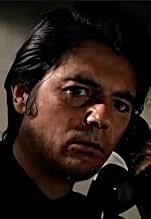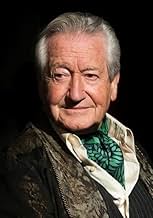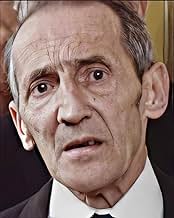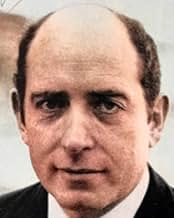Le souffle au coeur
- 1971
- Tous publics
- 1h 58m
As France is nearing the end of the first Indochina War, an open-minded teenage boy finds himself torn between a rebellious urge to discover love, and the ever-present, almost dominating aff... Read allAs France is nearing the end of the first Indochina War, an open-minded teenage boy finds himself torn between a rebellious urge to discover love, and the ever-present, almost dominating affection of his beloved mother.As France is nearing the end of the first Indochina War, an open-minded teenage boy finds himself torn between a rebellious urge to discover love, and the ever-present, almost dominating affection of his beloved mother.
- Nominated for 1 Oscar
- 2 wins & 3 nominations total
- Clara Chevalier
- (as Léa Massari)
- Laurent Chevalier
- (as Benoit Ferreux)
- Charles Chevalier
- (as Daniel Gelin)
- Father Henri
- (as Michel Lonsdale)
- Director
- Writer
- All cast & crew
- Production, box office & more at IMDbPro
Featured reviews
After 35 years, "Murmur of the Heart" still rings truer and closer to home than most contemporary comedies (and even dramas) revolving around the "coming of age" and "sexual awakening" in a young teen. It's also more daring and liberal in its construction of key family members being part of that very natural formation of sexual DNA and identity. They discuss philosophy. They discuss suicide. They discuss "The Story of O". Laurent and his 2 older brothers consort in disrespectfully petty behaviour contrary to what their upbringing holds sacred. Laurent's a top student, an intellectual that sees the world around him as a playground. It's a smalltime superiority complex as he defines his sensitive sensibilities with discernment beyond his years and a haughty disregard for divergent thoughts with a self-important air.
Revolving primarily about Laurent and his mother, Clara ("L' avventura's" Lea Massari), it's a refreshing look at a parental relationship based around adoration and fondness (coming under constant mocking by his brothers) than the contemporaneous and contemptuous notion of disdain and rebelliousness surrounding the authority figures and generational gaps. It underlines the idiom of a mother being her son's first love. In its essence, it encapsulates many complicated mother-child relationships including the emotional Oedipal issues that do crop up. And through that, a lovely parallelism is wrought with its interpretation of a woman who wants to be a girl and a boy who wants to be a man.
Conforming to an almost sitcom style, its self-dependent, autonomous scenes and situations just about start to border on farcical proportions. Its characters place sex and carnality high up on a pedestal, while Malle condescendingly films it as something so pedestrian and run-of-the-mill, not worth the hype and excitement over it anyway. He makes the patient, inevitable buildup to a key sex scene that had caused controversy when it was first released, to seem more natural and accepting than he does the sexual encounters that actually do seem the norm in society.
Murmur of the Heart is not a picture really bent on anything with a solid plot, as it's more concerned with the kind of European 'character study' (not that there isn't a story there to look at it). I read Ebert's review and he mentioned that the picture is more about the mother than the son. I could see where that viewpoint comes from, but I have to think that it's more about both of them, and while I watched it (as opposed to now thinking about it once its ended) it seemed more concerned with the son and perpetually through his point of view. He doesn't totally understand why his mother feels the way she does, and why she runs off to her other man, torn between leaving her gynecologist husband for him. But Malle makes it seem torn between each side when Laurent is left at the hotel while Clara is away for two days. His confusion leads him into a kind of disarray that's been hinted at before, and its made all the more clear in the tension- very underneath their games and witty remarks- that builds up.
But even with such an idea for the film, it is never really ugly or trashy. If anything, Malle does the best thing possible by making such a taboo subject realistic around the situation of family and the period. It's really wonderful seeing how Malle directs the smaller scenes, the bits that a director usually wouldn't bother with for emotional sake, or the little bits of dialog that do go on in the real world that don't necessarily have to do much with the rest of the story (one of those is when Laurent is getting washed down with a hose at the medical clinic, and the woman washing him goes on a long tangent of talk, not conversationally, just to hear herself talk). It could be tricky dealing with such mundane aspects of life such as brothers hanging out and goofing off, but there's layers of masculinity that get thrown in the mix (what are we to make of when the boys measure 'themselves' with a ruler, much to the angry housekeeper's dismay, or when Laurent tries out her mothers make-up I wondered).
All the while Malle bases these characters in an entirely plausible environment and with a cast that works very well. Massari is almost TOO alluring a woman to be anyone's mother, least of which the headstrong and vulnerable Laurent, but this works to show what her frame of mind must be too, as she gets as much attention (in a different way of course) as Laurent does from the teenage girls. The actor playing Laurent is a first-timer here ala Leaud in 400 Blows, but I even got a Bresson feeling from him, of there being a lot of emotions buried underneath his usually calm and poised expression, the kind that can be felt even with just the slightest hints. He's perfect for the kind of kid who's still a bit much in his own desires and wants to see what may happen from all of this in the long term. But the psychological implications are left even more to chance by the ending, which is one of the best moments Malle has ever directed as the family all laughs together. Not to forget to mention another big plus, the film is filled with one of the best jazz soundtracks ever put together (including Parker, Bechet, Gillespie among others), and an exquisite use of period and very tasteful way about the more 'graphic' parts of the film. Murmur of the Heart shows in tragic-comic detail the sophistication and lewd sides of the French, and draws a lot to ponder about a boy's crossover in that rotten period of 14-15 years old and of a woman who has the same mixture of unstable emotions and child-like ideals of her own blood that pull the two into what happens. In totally unconventional terms, it's 'magnifique'. A+
Young Laurent Chevalier, his mother & his roguish elder brothers break every taboo known to small-town 1950s Dijon: underage drinking, underage sex, blasphemy, incest, petty theft, adultery, art forgery, whoremongering, drunk driving... What more can you ask? Malle treats their escapades with such lighthearted sympathy & wit you can't help liking them.
Before I first saw Soufflé au Coeur, I read a blurb for it in the monthly listings of my local repertory cinema that ran something like this (I quote from memory): "This film does a lot to restore the French to their former reputation for sophisticated naughtiness." I can't sum it up any better than that.
Did you know
- TriviaAccording to Pauline Kael, "what makes this movie so different from other movies about bourgeois life is that the director, Louis Malle, sees not only the prudent, punctilious surface but the volatile and slovenly life underneath. He looks at this bourgeois bestiary and sees it as funny and appalling and also - surprisingly - hardy and happy. It is perhaps the first time on film that anyone has shown us the bourgeoisie enjoying its privileges." Also for Kael, "it's a movie not about how one has been scarred but about how one was formed."
- GoofsDuring the chess match, the boys are sitting on what should be the spectator sides of the board, rather than the player sides. It appears that the chessmen were set up along the files rather than the ranks. (The lower right hand corner squares are black, when they should be white.)
- Quotes
Clara Chevalier: Why not take things as they come?
Laurent Chevalier: Meaning?
Clara Chevalier: I don't know. Begin at the beginning. Wait to experience things yourself. And there's plenty of time. I'm not rushing you. Everyone has to discover love for himself. Lots of things can happen between a man and a woman. Better to find out for yourself, not from a book.
- ConnectionsFeatured in Arena: My Dinner with Louis (1984)
- How long is Murmur of the Heart?Powered by Alexa
Details
- Release date
- Countries of origin
- Official site
- Languages
- Also known as
- Murmur of the Heart
- Filming locations
- Passage de la Geôle, Versailles, Yvelines, France(opening scene, as a street in Dijon)
- Production companies
- See more company credits at IMDbPro
Box office
- Gross US & Canada
- $1,160,784
- Gross worldwide
- $1,160,784

![Bande-annonce [OV]](https://m.media-amazon.com/images/M/MV5BMzM3NTUwMDAtYmQxZS00ZTAzLWJkYzktOWIyZTI1OTBjYjRiXkEyXkFqcGdeQXRyYW5zY29kZS13b3JrZmxvdw@@._V1_QL75_UX500_CR0)

